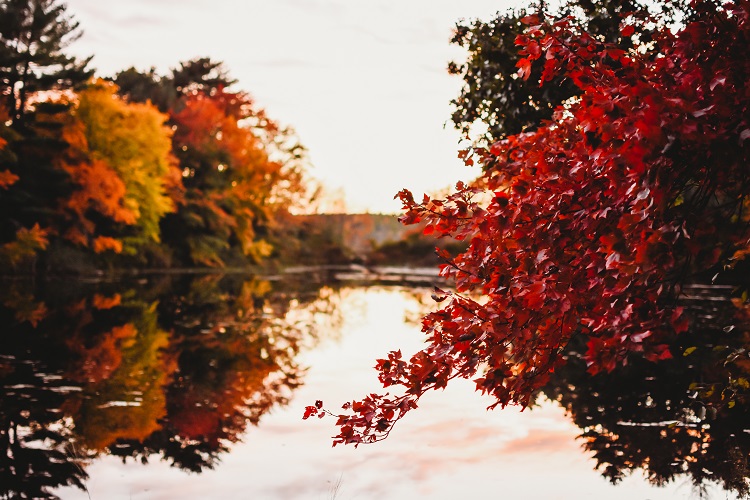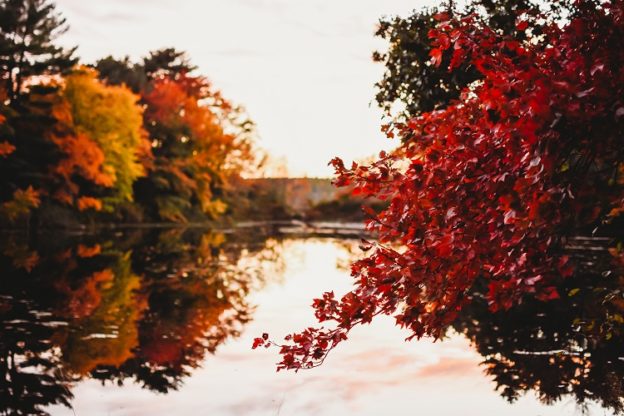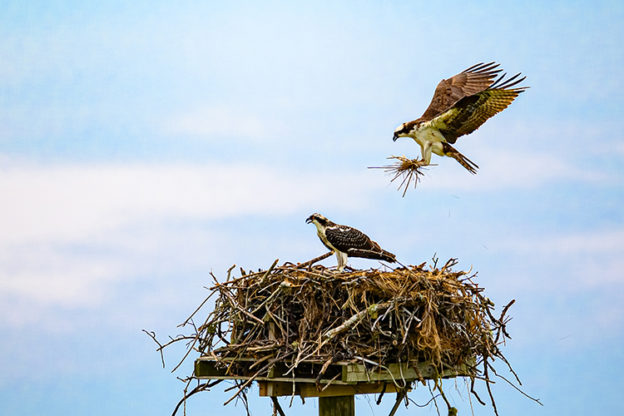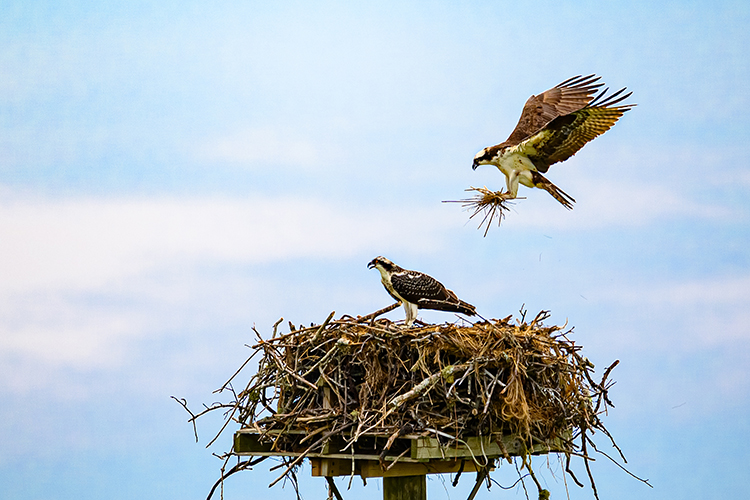
Climate change impacts all of us. Along with sea level rise, we’re seeing extreme weather, inland and coastal flooding, and severe heat at a greater frequency and intensity. To adapt to climate change means to prepare for impacts like these, and one way that Mass Audubon is acting is through protecting and restoring nature. That’s because natural areas like forests and wetlands help us withstand these impacts in addition to storing carbon, helping us mitigate climate change simultaneously!
Mass Audubon partners with a program that prioritizes nature-based solutions to climate change— Massachusetts’ Municipal Vulnerability Preparedness (MVP) Program. The MVP Program provides support for cities and towns in the Commonwealth to identify climate hazards like extreme weather, assess local vulnerabilities to these hazards, and develop action plans to increase resilience to climate change.
Two Steps Closer to Resilience
In addition to encouraging the use of nature-based solutions, the MVP Program’s core principles include using best available climate change science, leading a robust and equitable community engagement process, and enacting climate solutions that benefit the entire community—especially vulnerable populations most affected by climate change. Here’s how it works.
Step 1: Planning
First, municipalities participating in the MVP Program need to lead a community-driven planning process to understand climate hazards and vulnerabilities and to identify priority adaptation actions. The city or town works with a state-certified technical assistance provider (like Mass Audubon) and organizes a community workshop with a range of stakeholders that can speak to infrastructural, societal, and environmental needs in light of climate change.
Once a municipality completes the MVP Planning Grant process and submits a summary of findings, they become certified as an MVP Community, eligible to apply for Action Grants to achieve their climate resilience goals.
Step 2: Action
MVP Communities apply for Action Grants to implement on-the-ground projects that address the priorities identified during the planning stage. The potential for these projects is vast—they can include updating stormwater infrastructure given increases in precipitation, removing dams to restore stream flow, conserving a wetland to protect against flooding, or planting trees in an environmental justice community.
Getting an Action Grant can be competitive, but applications that prioritize nature-based solutions to climate change—which provide co-benefits to communities like improved air quality—are in a better position to receive the grant.
The Power of Partnerships
The MVP Program is a great example of partnership between state and local government to address the climate crisis, and MVP communities are working together to make their projects more impactful.
Thanks to MVP grants, four Greater Boston awardees are each focusing on extreme heat from climate change—an impact that was felt strongly this past summer. Since the four projects are similar in geographic area and project goal, the teams have been meeting regularly to learn from each other’s efforts and coordinate community engagement.
Multiple communities are also encouraged to apply for funding together, and Mass Audubon is a partner in one successful example of this. In Southeastern Massachusetts, the communities of Freetown, Lakeville, Middleborough, and Rochester are working together to create a nature-based watershed management and climate action plan in an area of interconnected lands and ponds known as the Assawompset Ponds Complex.
Get Involved
89% of the entire Commonwealth, or 312 municipalities, now participate in the MVP Program. You can help bring participation to 100% and encourage the use of nature-based solutions in your own city or town!
Whether or not your community is already involved in the MVP Program, contact your municipal officials to encourage using this opportunity to protect and restore nature. Even more, all Action Grant projects require public involvement, so your input as a stakeholder is highly valued.
Solving climate change is up to all of us, collectively. Visit our website for more ideas on how you can start acting for resilient, sustainable communities.
– Paige Dolci, Climate Resilience Coordinator




